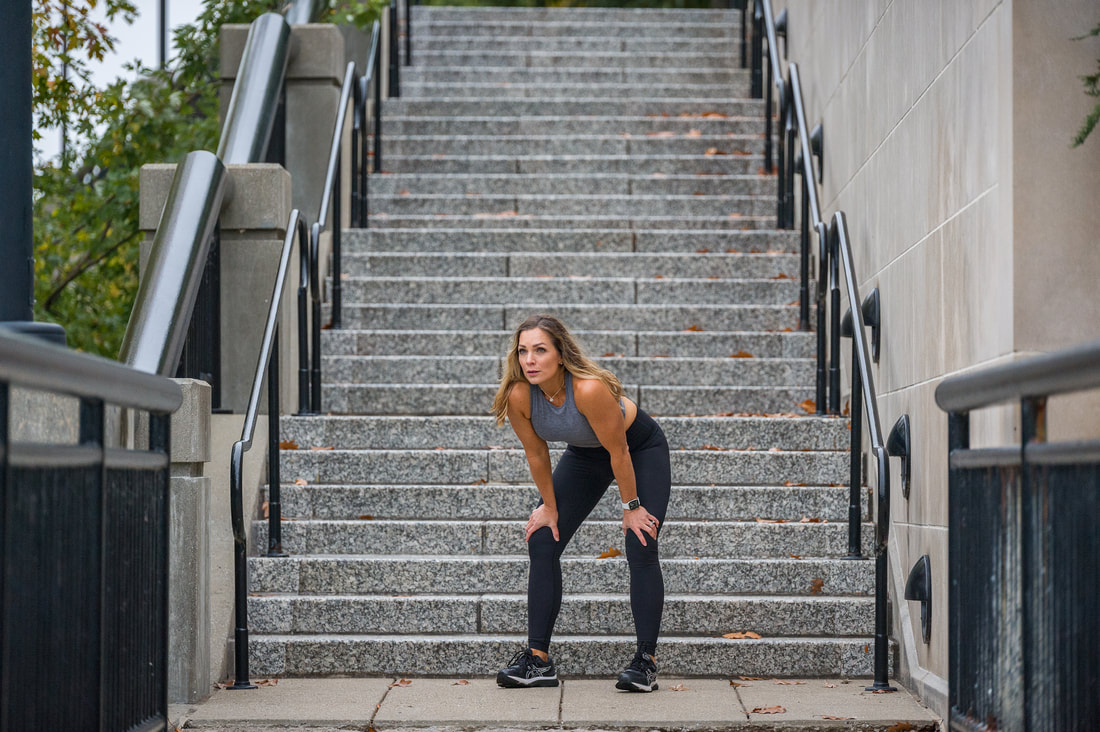Goal setting for 2021
Many of us are looking forward to 2021, and with good reason. If you’ve had a tough year and have lost focus on your health, your fitness, or have gained the “quarantine 15,” you might be looking forward to a fresh start after the holidays. If your goal in 2021 is weight loss, fitness or nutrition related, there are a few questions you should ask yourself, especially if you are looking for help in this arena.
|
How is your mindset?
Your mindset is a HUGE part in making a change and sticking to it. If you don't have the right mindset, it’s going to be difficult to "stick to the program." Define the purpose—why are you making this change? There will always be something that comes up, or an excuse to get out of it. Your purpose needs to be stronger than your excuses. Falling in love with the process, instead of focusing only on results, also leads to long term success. If you start to enjoy eating healthy, feeling good and exercising, it makes it much easier to stick with. If you only do it for the results, once you get to your goal and you stop eating heathy and exercising, it will just come back. |
What goals you have set for yourself?
If your goal is to lose weight, a healthy goal for weight loss is only 1-3 pounds per week. If you have less to lose, this will be even slower. Be wary of setting an unsafe or unrealistic goal for yourself. If you are incorporating exercise, the results on the scale may not reflect the changes you will be seeing in your body. You may be losing fat and gaining muscle, which will not result in a huge drop on the scale. I encourage people not only to focus on a certain weight loss goal, but to focus more on feeling better, sleeping better, how their clothes fit, their before-and-after pictures, and improving their health. It can be very frustrating to set a goal and not be able to reach it, so if the goal is unrealistic or unattainable, you will always be frustrated and feel like a failure. It’s no wonder so many people give up on themselves. The key is setting realistic, attainable goals. Setting smaller, attainable goals frequently can increase your success in reaching your goals. As you meet each goal, you set a new one, which puts you in constant, positive, and forward momentum.
No matter what your goal may be, it should be:
Instead of saying, "I want to lose weight," "I’m going to eat healthy," or “I want to lose 20 pounds in 2 weeks,” set a realistic and specific goal with a deadline. For instance: "I want to exercise at least 2 times per week for 4 weeks," or, "I’m going to eat a serving of vegetables for every lunch and dinner for a week."
If your goal is to lose weight, a healthy goal for weight loss is only 1-3 pounds per week. If you have less to lose, this will be even slower. Be wary of setting an unsafe or unrealistic goal for yourself. If you are incorporating exercise, the results on the scale may not reflect the changes you will be seeing in your body. You may be losing fat and gaining muscle, which will not result in a huge drop on the scale. I encourage people not only to focus on a certain weight loss goal, but to focus more on feeling better, sleeping better, how their clothes fit, their before-and-after pictures, and improving their health. It can be very frustrating to set a goal and not be able to reach it, so if the goal is unrealistic or unattainable, you will always be frustrated and feel like a failure. It’s no wonder so many people give up on themselves. The key is setting realistic, attainable goals. Setting smaller, attainable goals frequently can increase your success in reaching your goals. As you meet each goal, you set a new one, which puts you in constant, positive, and forward momentum.
No matter what your goal may be, it should be:
- Written down
- Specific or measurable
- Deadline-driven
- Realistic
- Inspiring
Instead of saying, "I want to lose weight," "I’m going to eat healthy," or “I want to lose 20 pounds in 2 weeks,” set a realistic and specific goal with a deadline. For instance: "I want to exercise at least 2 times per week for 4 weeks," or, "I’m going to eat a serving of vegetables for every lunch and dinner for a week."
What steps will you be taking to help you reach your goals?
If you’re looking to lose weight or improve your body composition, it's important to find a program or plan that isn't severely restrictive and allows you to gradually work this into your life as a lifestyle, not a quick-fix (all-or-nothing) program.
Ask yourself… Are you going to be doing too much too suddenly? Are you going to put too much pressure on yourself? If you choose a technique or something that is the complete opposite of what you are doing now, or something that is severely restrictive, it might be too much all at once.
If you’re looking for help, you should look for a program or technique that is attainable for you. You should also look for something that teaches you how to maintain this lifestyle long-term, instead of looking for something you think will be easy, or a quick fix. People frequently look for set meal plans so they “don’t have to think.” If you have a set meal plan, you won't learn how to make the right choices on your own. So, when the plan is over, or if you're not in your controlled environment, you won't know what to do. In addition, if a program depends on pre-made meals or shakes, you won’t learn how to make the right choices with food. Another thing to consider is whether you’ll be able to buy these products indefinitely to maintain these results. These techniques are some of the things that lead to “yo-yo dieting” because they only work in the short term and cannot be maintained.
A lot of people have the “all-or-nothing” mentality. They choose a severely restrictive or aggressive plan to achieve a very aggressive goal. Starting these diets that promise drastic results in a short amount of time most likely utilize strategies that are severely restrictive and are impossible to maintain long term. Another problem falls with starting a workout “challenge” that requires you to exercise intensely every single day. If your body is not ready for this level of workouts, it can lead to injury. This amount of exercise is also difficult to continue over the long term.
When it comes to weight loss or improving your health in 2021, be sure you are in the right mindset to put forth the effort; that you set realistic, attainable goals for yourself; and that you choose a plan that you can maintain over the long-term. Focus on smaller goals and implementing healthier habits in your routine. Setting smaller goals and achieving them routinely will give your attitude and spirit a boost and will leave you wanting more! There is always room for self-improvement!
For help with an online, customized nutrition plan with workouts and daily support and accountability, check out The Refine YOU Program at www.refineyou.co, run by nutritionist, trainer and physician assistant Kim Goletz. The program will meet you at your level and address your needs. It is a jump start to a lifestyle change and the goal is to ultimately help you be the Healthiest YOU Possible, Mind, Body, and Spirit.
If you’re looking to lose weight or improve your body composition, it's important to find a program or plan that isn't severely restrictive and allows you to gradually work this into your life as a lifestyle, not a quick-fix (all-or-nothing) program.
Ask yourself… Are you going to be doing too much too suddenly? Are you going to put too much pressure on yourself? If you choose a technique or something that is the complete opposite of what you are doing now, or something that is severely restrictive, it might be too much all at once.
If you’re looking for help, you should look for a program or technique that is attainable for you. You should also look for something that teaches you how to maintain this lifestyle long-term, instead of looking for something you think will be easy, or a quick fix. People frequently look for set meal plans so they “don’t have to think.” If you have a set meal plan, you won't learn how to make the right choices on your own. So, when the plan is over, or if you're not in your controlled environment, you won't know what to do. In addition, if a program depends on pre-made meals or shakes, you won’t learn how to make the right choices with food. Another thing to consider is whether you’ll be able to buy these products indefinitely to maintain these results. These techniques are some of the things that lead to “yo-yo dieting” because they only work in the short term and cannot be maintained.
A lot of people have the “all-or-nothing” mentality. They choose a severely restrictive or aggressive plan to achieve a very aggressive goal. Starting these diets that promise drastic results in a short amount of time most likely utilize strategies that are severely restrictive and are impossible to maintain long term. Another problem falls with starting a workout “challenge” that requires you to exercise intensely every single day. If your body is not ready for this level of workouts, it can lead to injury. This amount of exercise is also difficult to continue over the long term.
When it comes to weight loss or improving your health in 2021, be sure you are in the right mindset to put forth the effort; that you set realistic, attainable goals for yourself; and that you choose a plan that you can maintain over the long-term. Focus on smaller goals and implementing healthier habits in your routine. Setting smaller goals and achieving them routinely will give your attitude and spirit a boost and will leave you wanting more! There is always room for self-improvement!
For help with an online, customized nutrition plan with workouts and daily support and accountability, check out The Refine YOU Program at www.refineyou.co, run by nutritionist, trainer and physician assistant Kim Goletz. The program will meet you at your level and address your needs. It is a jump start to a lifestyle change and the goal is to ultimately help you be the Healthiest YOU Possible, Mind, Body, and Spirit.
Copyright © 2025 Pena Group, Inc. All rights reserved.




